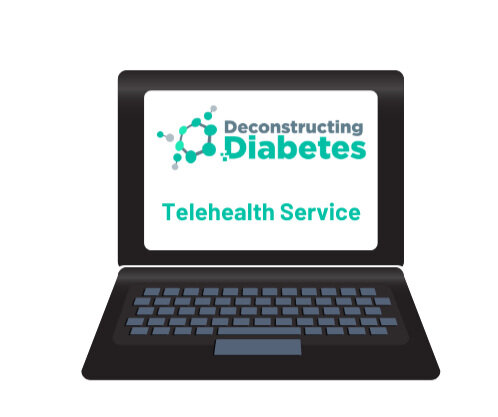Why Your Diabetes Management Plan Might Not Be Working – And What You Can Do About It
When it comes to managing diabetes, adopting a diet is important However, not all plans are created equal, and some might not bring the results you hope for. There might be numerous reasons that your dietary approach is not working. Here are three common reasons why this might be the case, along with actionable tips to turn things around.
1. It’s a “Diet,” Not a Lifestyle Change
The term 'diet' often implies a temporary phase with a beginning and an end, which can lead to a cycle of restricting and overeating. Instead of thinking in terms of what you can't eat, focus on nourishing your body with foods that helps manage your appetite, fuel activity and support long term lifestyle changes.
Action Tip:
Transition from a diet mentality to a lifestyle approach by incorporating food intake that you enjoy that also fits with your health goals. This shift not only enhances your physical health but also your mental wellbeing by removing the “dieting mentality” and guilt associated with eating.
2. Stress About Adherence
If the thought of sticking to a specific dietary plan causes you stress, it may be time to reconsider your approach. Stress about your food intake can increase appetite, lead to “all or nothing thinking” regarding food intake – which defeats the purpose of the dietary plan itself.
Action Tip:
Create a flexible eating plan that feels less like a strict regimen and more like following some principles of eating that form part of your daily life. This can reduce anxiety and make your eating part of your life, not the focus!
3. Not Addressing Underlying Habits
Without understanding the habits and behaviours that influence your food choices, any diet plan is less likely to succeed. Insight into these patterns can guide you to better manage your diabetes.
Action Tip: Take note of what triggers your eating habits, like non hungry eating or snacking at the desk or while watching TV, and develop strategies to address these behaviours. So much of what we do is out of habit, and being aware of these, and creating new habits is important to make lasting changes.
Conclusion The dietary management of your diabetes isn't just about choosing different foods; it's about your approach to eating. If you're finding it challenging to manage your diabetes effectively with your current plan, it might be time to try a new approach.
If your current plan isn’t giving you the results you need, or if you feel you could use some more guidance, don’t hesitate to reach out.


























